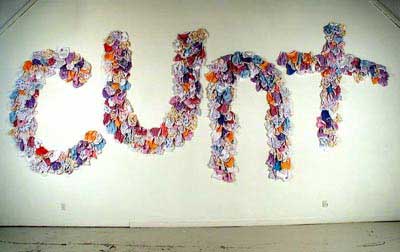The Straits Times (Pacific Area Newspaper), Aug 2, 2003 SAT
Less of the F-word and the S-word
would make Q better
Glowing
at times, this book suffers from an overdose of the nasty
By Susan Ang
 :-) |
Q
is not a light book. While most reviewers have commented positively on the
novel's pace, the first 300 pages are somewhat hard going, and a stringent
test of readerly stamina.
For those who make it through the long drag, however, there are rewards: The
pace picks up, the novel settles and the 'ideas' that the blurb proclaims
this to be a novel of, emerge with some luminosity.
Q is set against the background of Reformation Europe, effectively
beginning in 1517, with Luther and his 95 theses, and concluding in 1558,
the year of Pope Paul IV's ascension to the Papal throne.
The thriller element hyped by the blurb revolves around the mutual tracking
down of the two characters through whose voices the novel emerges - an elusive
pimpernel of an Anabaptist with many names and no name, and the eponymous
Q, a Papal spy who has infiltrated and betrayed the Anabaptists.
Now, Luther Blissett is not the footballer from Watford, but the name of an
organisation of writers, four of whom - Federico Guglielmi, Roberto Bui, Luca
di Meo and Giovanni Cattabriga - wrote Q.
There were rumours, when the book first came out, that the author was Umberto
Eco in disguise. This comparison has tended to dog writers wanting to play
with the historical thriller/conspiracy theory literary game-playing template,
and a palette running from literature and art to astronomy and chess.
Arturo Perez-Reverte, Iain Pears and Allan Kurzweil, for instance, come to
mind.
Such comparisons, however, tend on the whole towards superficiality. And the
speculative attribution of Q to Eco fails to take into account that
Q is a work much more ideologically ponderous - the leftist elements
keep bashing you on the head and, in 635 pages, that's a lot of bashing -
and much less slyly witty than a work by Eco tends to be.
This is an ambitious novel, and part of its problem is that it tries to do
too many things, not all of which can be yoked comfortably together.
For example, the sprawling largeness of the historical canvas, with its many
characters; and the novel's resistance to structure and conventional ordering
create a diffuseness which may be part of the novel's aesthetic and intellectual
philosophy.
But this also dissipates the tautness thrillers depend on.
Furthermore, there exists an uncomfortable tension between the philosophy
implicitly advocated by the novel - which can be roughly summed up as anti-elitist
and pro-proletarian, valorising the unsung Joe Bloggses of history - and the
fact that the novel itself, as it stands, is probably not a novel which Joe
Bloggs is going to find easily accessible in all its subtleties.
How many will make the leap from Qolet, Q's full nom de plume, to Qoe(h)elet(h),
Hebrew for 'preacher' from which is derived the romanised form, Ecclesiastes?
Indeed this had to be pointed out to me by a friend.
However, the ideas which work, if not in themselves startlingly new, are important
and relevant.
Among these are the relationship between word and flesh, or theory and practice;
the relative power of physical force, money and the printed word to effect
change; the fragility and sad corruptibility of the utopian vision.
Perhaps over and above these is the passionate commitment to the value of
thought independently arrived at and carved out, as opposed to thought which
is processed, controlled and given.
This is dramatised in the novel through the conflict between the Anabaptists
and the Catholic Establishment.
There are many good moments in Q and, at its best, the work glows.
It has - to borrow one of its own favourite terms - many lapidary phrases.
But it also suffers - again to borrow a word it often uses - from attacks
of logorrhoea, and its striving after stylistic effect can sometimes be wearing
and self-indulgent.
And perhaps too, in the end, the head-lice, mud, gore and excreta, and the
wealth of 'f**k's and 's**t's in Q, which attempt to realify the historical
world, could have done with less screen time.
A
stern, stern, editor would have done wonders for Q.
The reviewer is professor of English Language and Literature at the National University of Singapore.